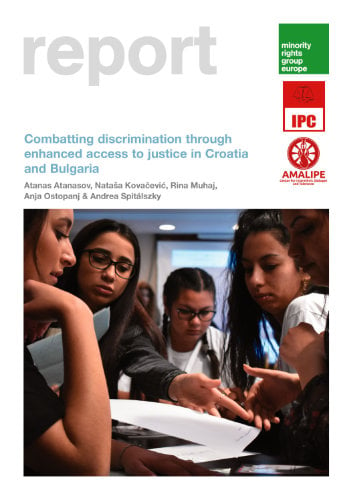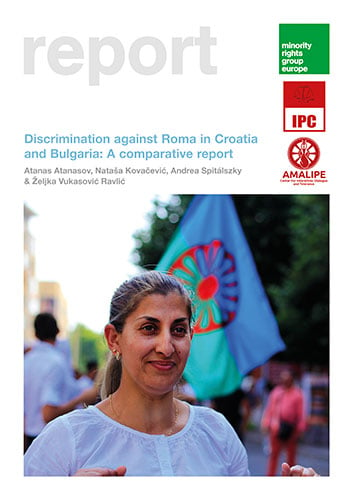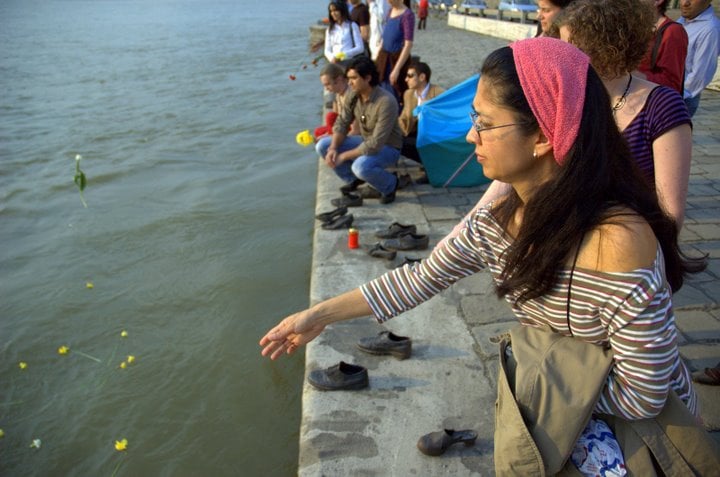Bulgaria
-
Main languages: Bulgarian, Turkish, Romani. According to the 2011 census, 85.2 per cent spoke Bulgarian as their mother tongue, 9.1 per cent Turkish, 4.2 per cent Romani.
Main religions: Eastern Orthodox, Islam (mainly Sunni).
Minorities include Turks, Roma, Russians, Armenians, Vlachs, Macedonians, Greeks, Ukrainians, Jews, Romanians, Tatars and Gagauz.
According to the 2011 census, the total population was 7,364,570, a decrease of over 7 per cent since 2001. 91 per cent of respondents provided responses on their ethnicity: of those, 84.8 per cent identified as Bulgarian, 8.8 per cent as Turks and 4.9 per cent as Roma. However, the number of self-identifying Roma declined by more than 45,000 since the 2001 census and was far lower than unofficial estimates, leading commentators to suggest that many Roma had been reluctant or unwilling to declare their identity. The census only permitted respondents to classify themselves into these three ethnic groupings.
The population identified as ethnically Bulgarian is significantly more urbanized in comparison to the other two ethnic groups: 77.5 per cent of Bulgarians live in urban areas, compared to 37.7 per cent of Turks and 55.4 per cent of Roma.
There are also smaller numbers of Russians, Armenians, Vlachs, Karakachans, Ukrainians, Macedonians, Greeks, Jews, Romanians and others.
Regarding religious identity, 21.8 per cent chose not to respond when taking part in the 2011 census. Of those who did, 76 per cent identified as Eastern Orthodox, 0.8 per cent as Catholic and 1.1 percent as Protestant, while Muslims made up around 10 per cent of the population.
In its 2014 report, the Council of Europe’s Advisory Committee of the Framework Convention for the Protection of National Minorities reported that only three ethnic groups – Bulgarians, Turks and Roma – were included in the census and those wishing to declare other identities, such as Macedonians and Pomaks, were not encouraged to do so. As the existence of both minorities is not recognized by authorities, in practice any official figures on these communities are not seen as reliable. Another issue was that the number of census respondents self-identifying as Roma was much lower than unofficial estimates, and a significant number of persons preferred not to declare their ethnic identity. The census results indicated that 1,654 respondents who described their ethnicity as ‘other’ identified as Macedonians, although many Macedonian organizations do not consider these figures at all credible.
There are an estimated 160,000 – 240,000 Pomaks living mainly in the Rhodope Mountains, who are most probably descendants of Bulgarian Christians who converted to Islam during the period of Ottoman rule, while retaining the Bulgarian language as well as certain Orthodox practices. The authorities do not consider Pomaks as a distinct ethnic minority and there was no mention of them in the 2010 census (nor in the preceding censuses of 1992 and 2001).
The Bulgarians are a Slavonic people and generally Eastern Orthodox Christians.
During the five centuries of direct Ottoman rule, the population of Bulgaria became increasingly heterogeneous, acquiring in particular large Turkish and Slavic-speaking Muslim minorities. Although many Turks and Muslims left the country after 1878, the population of Bulgaria retained its ethnic, religious and linguistic diversity.
Pastoralist nomads include Romance-speaking Vlachs and the Greek-speaking Karakachans (also called Sarakatsans). Vlachs and Karakachans were forced to settle in fixed communities during the communist period. The yet smaller communities of Albanians and Muslim Tatars were obliged during the communist period to adopt Bulgarian names as were other Muslim minorities such as the Pomaks and the ethnic Turks. Muslim Cherkez (Circassians), who were settled in Bulgaria in the nineteenth century by the Ottoman authorities, appear to have been entirely assimilated within the Turkish community.
The majority of Bulgarian Jews are Hispanic-Ladino speakers and are the descendants of Sephardic Jews who fled from Spain to the Ottoman Empire during the sixteenth and seventeenth centuries. Ladino-language education was resumed in several schools after 1989. About 40,000 Jews were recorded in Bulgaria during the interwar period, most of whom emigrated to Israel after 1945. Although the Jewish minority was recognized by the communist authorities, most of the country’s synagogues were closed. The current population is estimated to be around 2,200.
-
Environment
Bulgaria lies in south-eastern Europe, on the eastern side of the Balkan Peninsula. It is bounded by Romania to the north, Serbia and Macedonia to the west, and Greece and Türkiye to the south. The coastline of the Black Sea marks Bulgaria’s eastern boundary. The Stara Planina or Balkan Mountains cross Bulgaria from west to east. The Rhodope Mountains lie to the south-west of the country near the frontier with Macedonia and Greece.
History
The Bulgarians established an empire in the Balkans in the ninth and tenth centuries, during which time they were converted to Eastern Orthodox Christianity. The Bulgarian state was overrun by the Turks at the end of the fourteenth century and remained a part of the Ottoman Empire until 1878, when it was recognized as an autonomous principality. In 1908 Bulgaria achieved full independence as a sovereign kingdom.
During the late nineteenth and early twentieth centuries, the Bulgarian government made several attempts to convert the non-Christian population. In the ‘Christianization’ campaign begun at the time of the Balkan Wars of 1912-1913, many Slav-speaking Muslims were forced to adopt Bulgarian names. Throughout the interwar period, the government pursued a policy of neglect towards minorities, although Turkish and other minority schools were allowed to function.
Bulgaria’s record during World War II is noteworthy in that its Jewish population – just under 50,000 at the time – was rescued from the Holocaust. While legal restrictions had been introduced in 1941, Bulgarian Jews were saved from deportation to the Nazi death camps by a coalition of Bulgarian clergy, intelligentsia and the king. Over 11,000 Jews in Bulgarian-occupied Thrace and Macedonia were, however, deported by Bulgarians to Nazi concentration camps. After the war, the majority of Bulgaria’s Jewish population migrated to Israel.
After World War II, Bulgaria was taken over by the communists, and would remain a Soviet satellite under communist rule until 1989. Initially, the communist government adopted a reasonably tolerant attitude towards minorities. The Constitution of 1947, while making the Bulgarian language obligatory in schools, affirmed that ‘National minorities have a right to be educated in the vernacular . . . and to develop their national culture’. The regime recognized Macedonians’ national rights and introduced Macedonian in schools.
As a result of increasing tension between Bulgaria and Yugoslavia, recognition of Macedonian rights waned, and attempts at assimilation began to be pursued with increasing vigour after 1948. Macedonian language education ended in 1963. Subsequently, the Institute for Bulgarian Language describing Macedonia in 1993n as a literary norm of Bulgarian. The government cut back on minority educational and cultural facilities, circumscribed religious practices, and increased pressure on members of minority groups to adopt Bulgarian names.
The 1971 Constitution expunged all references to minorities, and between 1970 and 1973, the government ratcheted up efforts to oblige Slav-speaking Muslims to abandon their Muslim and Arabic names and adopt Bulgarian ones. The assimilationist policy escalated even further in the 1980s with the Turkish community being similarly targeted and only the Armenians and Jews being recognized as minorities and afforded facilities. This forced assimilation was accompanied by violence and led to many deaths. The policies practised by the communist authorities resulted in several waves of emigration and culminated in 1989 with the exodus of 350,000 Turks -many of whom had subsequently returned by January 1990. Unlike ethnic Turks, Slav-speaking Muslims were refused permission by the authorities to emigrate to Türkiye.
Since the ‘gentle revolution’ of 1989, Bulgaria has moved towards political pluralism, liberal democracy and a market economy. International observers deemed general elections held since then to have been free and fair. Bulgaria joined NATO in March 2004, and in January 2007 became a full member of the European Union following a period of sustained economic growth.
However, the global financial crisis of 2007-2008 led to a significant contraction of the economy until 2010 when severe austerity measures encouraged by the IMF and EU contributed to improved fiscal results. Labour market reforms were nevertheless criticized by the International Trade Union Confederation as having ‘catastrophic’ social consequences, and Bulgaria remains the poorest member of the EU. It also has one of the fastest-shrinking populations in the world, having lost almost a fifth of its population since the 1990s: with more and more young people migrating westwards in search of work and the highest negative rate of births to deaths in Europe, Bulgaria’s population is projected to drop another 20 per cent to 5.5 million by 2050.
Political instability continued to beset Bulgaria following the collapse in July 2014 of the socialist-led government, after barely a year in office. The previous 12 months had been dominated by street protests over widespread corruption, falling living standards and the perceived negative socio-economic impact of migrants and ethnic minorities stoked by nationalist politicians who used xenophobic language to generate political tension. A banking crisis in 2014 and further corruption scandals led to more protests and the collapse of successive coalition governments headed by the centre-right GERB party. A snap election in March 2017 – the third in four years – resulted once again in a GERB-led coalition, albeit with a majority of just a single seat in coalition with a number of smaller nationalist parties.
Governance
The restoration of the rights of minorities began with the collapse of the communist government in November 1989. The new authorities passed legislation to restore the property of those who had fled the country and to permit the use of Muslim and Arabic names. After November 1989, minority-language publications and cultural groups were re-founded. A Law on Public Education passed in October 1991, allowing teaching in minority languages in schools. The Bulgarian National Assembly approved a new Constitution in July 1991. Bulgarian is retained as the official language but the right is permitted to ‘citizens whose national tongue is not Bulgarian . . . to study and use their own languages’. Although Eastern Orthodox Christianity is described as ‘the traditional religion’ of Bulgaria, religious freedom is affirmed.
Controversially, the 1991 Constitution provides that ‘political parties may not be founded on ethnic, racial or religious bases’. Enforcement of this provision, which may violate international conventions, has led to the disqualification of several minority parties from participation in the electoral process, including initially the predominantly ethnic Turkish Movement for Rights and Freedoms (DPS). However, the DPS was able to claim that it was a ‘movement’ and not a party, and so gain legal recognition. Whether a movement or a party, it is the third largest political organization and has gone on to be a coalition partner in several Bulgarian governments. Other minorities have had less success in their representation, in particular Macedonians, whose separate ethnicity has been routinely denied. While minorities remain under-represented in the 240-seat Bulgarian National Assembly, in regions where minorities live in substantial numbers, minority members have been elected as mayors and members of locally elected bodies. Also, persons belonging to the Turkish minority have been elected from the lists of a variety of parties at local level.
Since its democratization Bulgaria has passed significant legislation on minority rights. In 1997 the government established a consultative body on minority issues, the National Council on Ethnic and Demographic Questions. Many minority groups are represented on the Council, but Macedonians are not. After years of delay, in 1999 the government came to an agreement with Roma representatives on a Framework Programme for Equal Integration of Roma. After lagging implementation, more specific action plans and programmes were adopted in 2003 and 2004. Roma NGOs in particular have taken advantage of an anti-discrimination law passed in 2003, which allows civil society organizations to file public-interest lawsuits.
Bulgaria ratified the Council of Europe’s Framework Convention for the Protection of National Minorities in May 1999. In its 2014 report the Advisory Committee on the Convention commented that: ‘There is no comprehensive legislation governing the rights of persons belonging to national minorities in Bulgaria.’ The report continues by stating that, despite an increase in the budget of the Commission for Protection against Discrimination, ‘Issues faced by persons belonging to national minorities do not appear to be high on its agenda.’ It should be noted, however, that in the government’s fourth report (submitted in December 2017), it stated that the Commission has recently undertaken a series of public awareness campaigns and training events to sensitize government officials as well as the general public regarding issues to do with discrimination and hate crimes.
Bulgaria allows education in minority languages, but inadequate government resources have restricted its availability. Turkish, Armenian, Hebrew, Greek and Romanian are offered as elective courses at the primary and secondary level. By law, public broadcasting is to be available in languages other than Bulgarian, but in practice, such public television and radio programming is only available to a limited extent in Turkish.
The 2014 Advisory Committee report also highlighted the very low numbers of pupils studying minority languages, particularly in recent years of those studying Turkish, while no pupils were reportedly studying Romani as a mother tongue. It criticized the ‘passive’ approach of authorities to minority language education and also called for the government to ‘engage in a genuine, open and constructive dialogue with representatives of persons who identify as Macedonians and Pomaks, and to work together with them to find ways to remedy outstanding issues.’
-
Against a backdrop of protracted political instability, declining living standards and corruption, hostility towards minorities and mgirants in Bulgaria has become increasingly open, encouraged in part by the centre-right GERB party and its alliance of nationalist parties. Amongst the four coalition partners are the United Patriots (UP), a group of right-wing nationalist parties characterized by their antagonistic stance towards minorities. Besides calling for the Commission for Protection against Discrimination to be scrapped, the group have repeatedly vilified Roma, advocated the use of violence to keep out migrants and successfully campaigned to pass a law in September 2016 banning the wearing of face coverings in public places. Ostensibly neutral while in fact targeting Muslim women, the law enables authorities to exact fines or suspend welfare payments for offenders.
Against this backdrop, a pattern of civil unrest has emerged, fueled by inflammatory rhetoric from nationalist politicians, that has led to violent attacks and discriminatory practices targeting ethnic and religious minorities as well as migrants. As a partner of the governing coalition, the United Patriots and other nationalist parties have now gained signficant legitimacy and increased media coverage. They are known for campaigning on stongly anti-minority platforms and continue to use public appearances and affliated media outlets to stoke xenophobic and racist sentiment specifically against Roma, Muslims and migrants. These abuses have been enabled by a culture of impunity, with politicians and media outlets rarely sanctioned for hate speech.
This has been accompanied by an apparent rise in popular hostility towards minorities and migrants. Recent surveys conducted by the Open Society Institute (OSI) found that instances of hate speech in Bulgaria have steadily increased. The most recent survey in 2016 found that 58.2 per cent of respondents reported hearing statements expressing disapproval, hatred or aggression towards representatives of minority social groups in the previous twelve months, compared to 46.8 per cent in 2014. According to the research, Roma are the most frequent targets of hate speech, with 92 per cent of respondents having heard hate speech directed at members of this group. There was also a signicant increase in the share of respondents who had heard statements against Muslims – from 10.6 per cent in 2014 to 38 per cent in 2016. Furthermore, the study noted a decrease in the proportion of respondents who expressed disapproval at the use of hate speech, suggesting that such language is becoming normalized.
Bulgarian Roma suffer from acute social exclusion and the transition from planned to a market economy has worsened their overall economic and employment situation. High rates of poverty, unemployment, low human development indicators, poor living conditions, low quality infrastructure, and lack of access to other services all point to severe social exclusion. In urban settings specifically, the fear of ethnically motivated violence has been a factor in the early dropout of Roma girls and boys from school.
Anti-Semitism also remains a feature among right-wing extremists, as illustrated by the annual march through Bulgaria’s largest cities, Sofia and Plovdiv, to commemorate Hristo Lukov, a World War II general. Lukov espoused anti-Semitic and pro-Nazi views, and the march, which takes place despite a ban from the mayor of Sofia, is accompanied by pro-facist and xenophobic slogans. The march is endorsed by ultranationalist groups and occurs in spite of protests from Jewish groups and foreign governments. In February 2018, the march occurred again in Sofia after a court overturned a municipal ban.
According to the Anti-Defamation League, 44 per cent of Bulgarians harbour anti-Semitic attitudes – 10 percentage points higher than for Eastern Europe as a whole. While past research by organizations such as the Anti-Defamation League has detected very high levels of anti-Semitism, the Bulgarian authorities have failed to collect comprehensive data on anti-Semitic incidents. In October 2017, the government announced that it had appointed a national coordinator to combat anti-Semitism.
Meanwhile, 2018 marked the 75th anniversary of the rescue of Bulgaria’s Jews. Groups of ordinary citizens, intelligentsia, parliamentarians and clergy intervened on 10 March 1943 to stop Nazi forces from rounding up the Jewish population, numbering 48,000 at the time. The anniversary was marked by a ceremony involving Prime Minister Boyko Borisov and Dr. Alek Oscar, president of the Bulgarian Jewish organization Shalom, at the Sofia synagogue. The event also remembered the over 11,000 Jews in Bulgarian-occupied Thrace and Macedonia who were deported to Nazi concentration camps.
The situation of migrants and refugees in Bulgaria is illustrative of the discrimination faced by other minorities. Unused to hosting large numbers of refugees, the government was unable to respond effectively to the first influx of around 11,000 Syrian asylum seekers in 2013. In 2014, the government’s policies shifted focus from helping refugees at the borders to reducing inflows, including through the construction of a barbed wire fence along the 100-mile land border with Türkiye. Human rights groups have criticised this ‘containment plan’ and documented the actions of border police, often using excessive force, when summarily returning asylum seekers to Türkiye.
There have been some improvements in access to medical services, better accommodation and sanitary conditions, but the European Commission against Racism and Intolerance noted in its 2017 monitoring report that the situation for asylum seekers and refugees remains precarious, with organized anti-migrant demonstrations further stoking friction between local communities and refugees. In addition, self-described ‘migrant-hunters’ have received praise from the public as well as the head of country’s border police local police and national press for illegally detaining or searching migrants during organised ‘civic patrols’. One such individual was acquitted in August 2017 in a high-profile case involving the ‘arrest’ of three Afghan migrants at the Turkish border.
In recent years, the arrival of large numbers of Muslim migrants, combined with increased use of xenophobic and racist rhetoric by nationalist politicians, has also led to a dramatic rise in the number of hate crime attacks against Muslims and Muslim places of worship. Anti-Muslim demonstrations have led to vandalisation of dozens of mosques; however, arrests and convictions are very rare. Research by the Open Society Institute shows that hate speech towards Muslims increased sharply between 2014 and 2016.
-
General
- Bulgarian Helsinki Committee
- Centre for the Study of Democracy
- Open Society Foundation – Sofia (Bulgaria)
Jews
Roma
Updated July 2018
Related content
Latest
View all-

26 March 2024
Legal empowerment and gender justice in Smolyan
In Bulgaria, the Rodopchanka Women's Club empowers minority women by breaking gender norms.
-
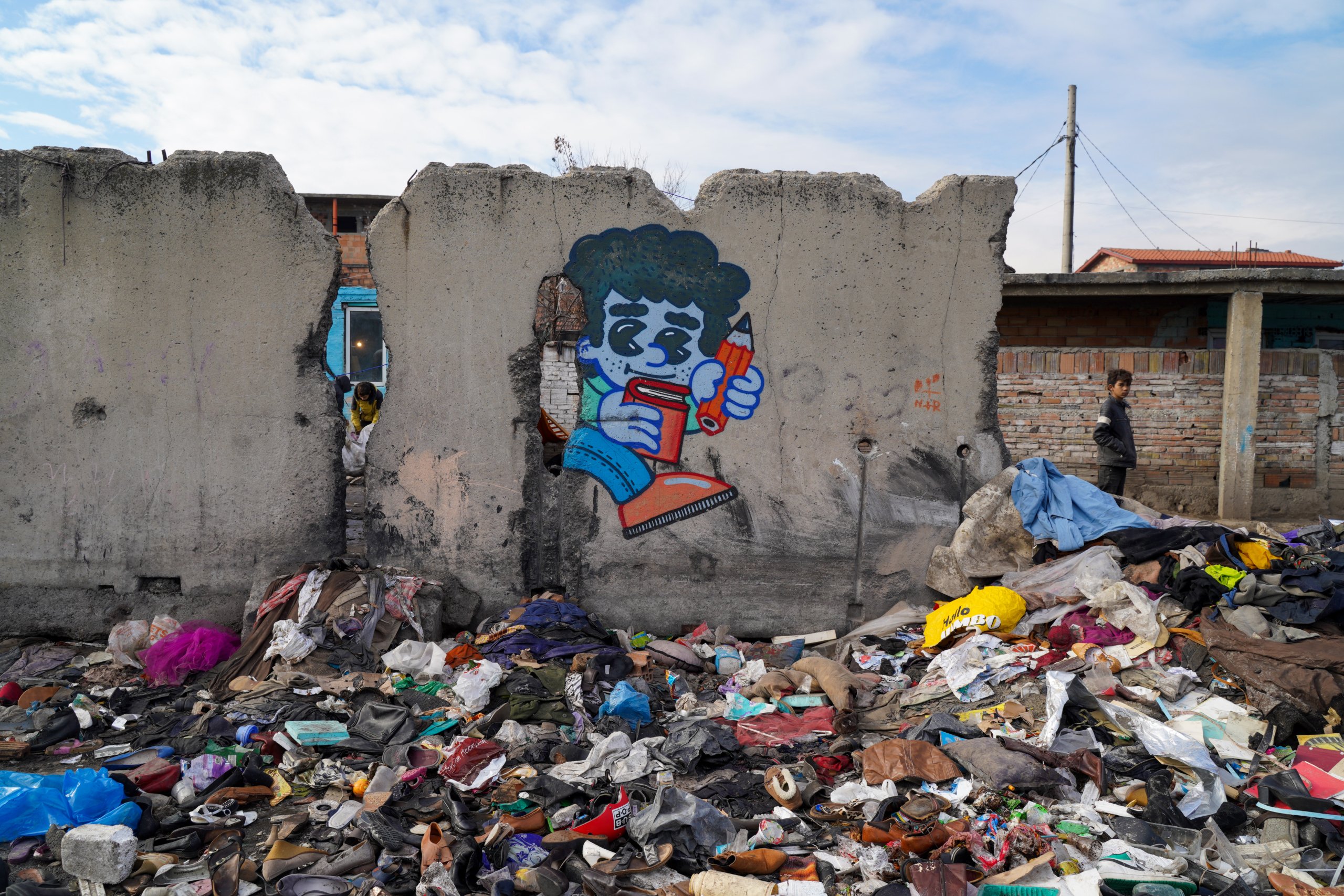
11 March 2024
Cultivating the citizens of tomorrow in Sliven
In Sliven's segregated neighbourhood of Nadejda, environmental injustices persist, with limited access to green spaces and essential…
-
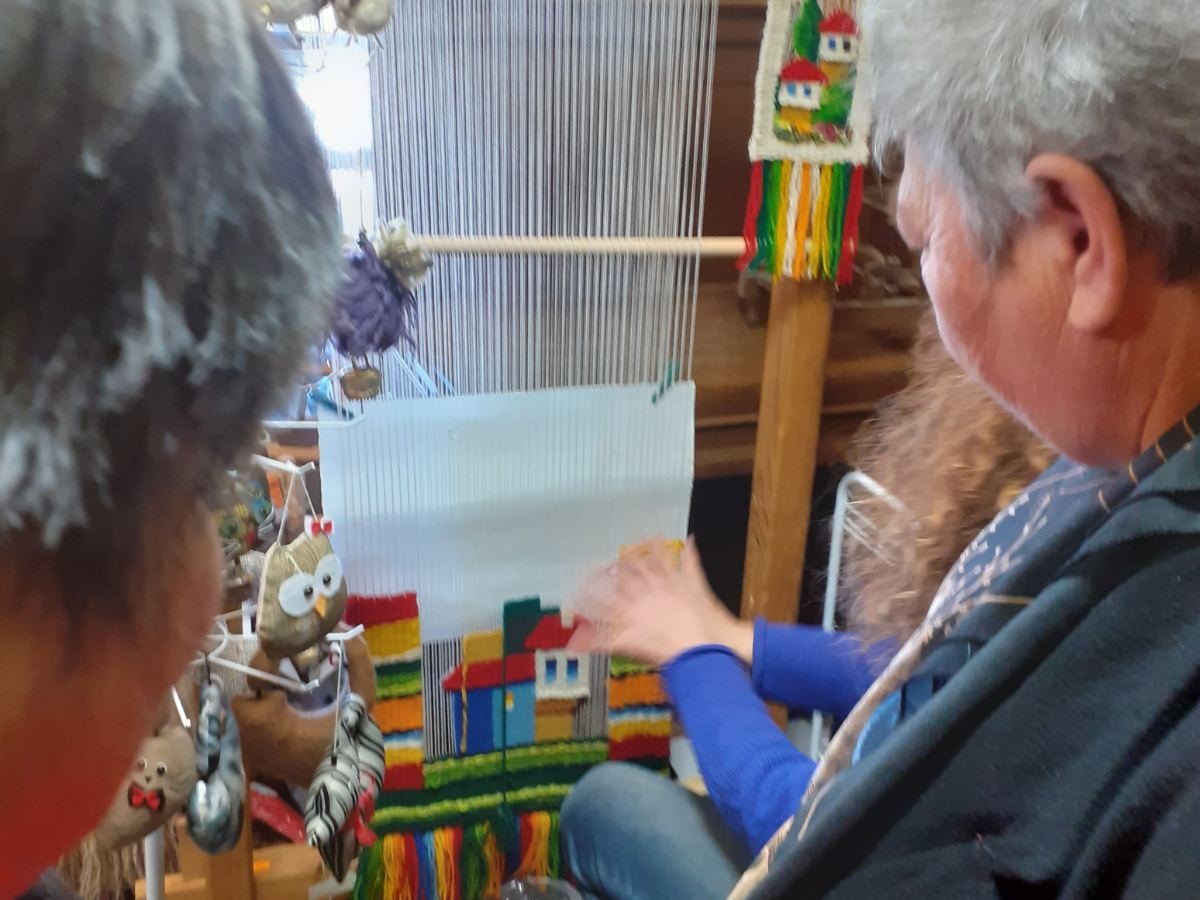
7 March 2024
Crafting new beginnings in Plovdiv
The project 'People with disabilities from the municipality of Kuklen preserve traditions and the Bulgarian spirit,' organized by NSSSP,…
Minority stories
-
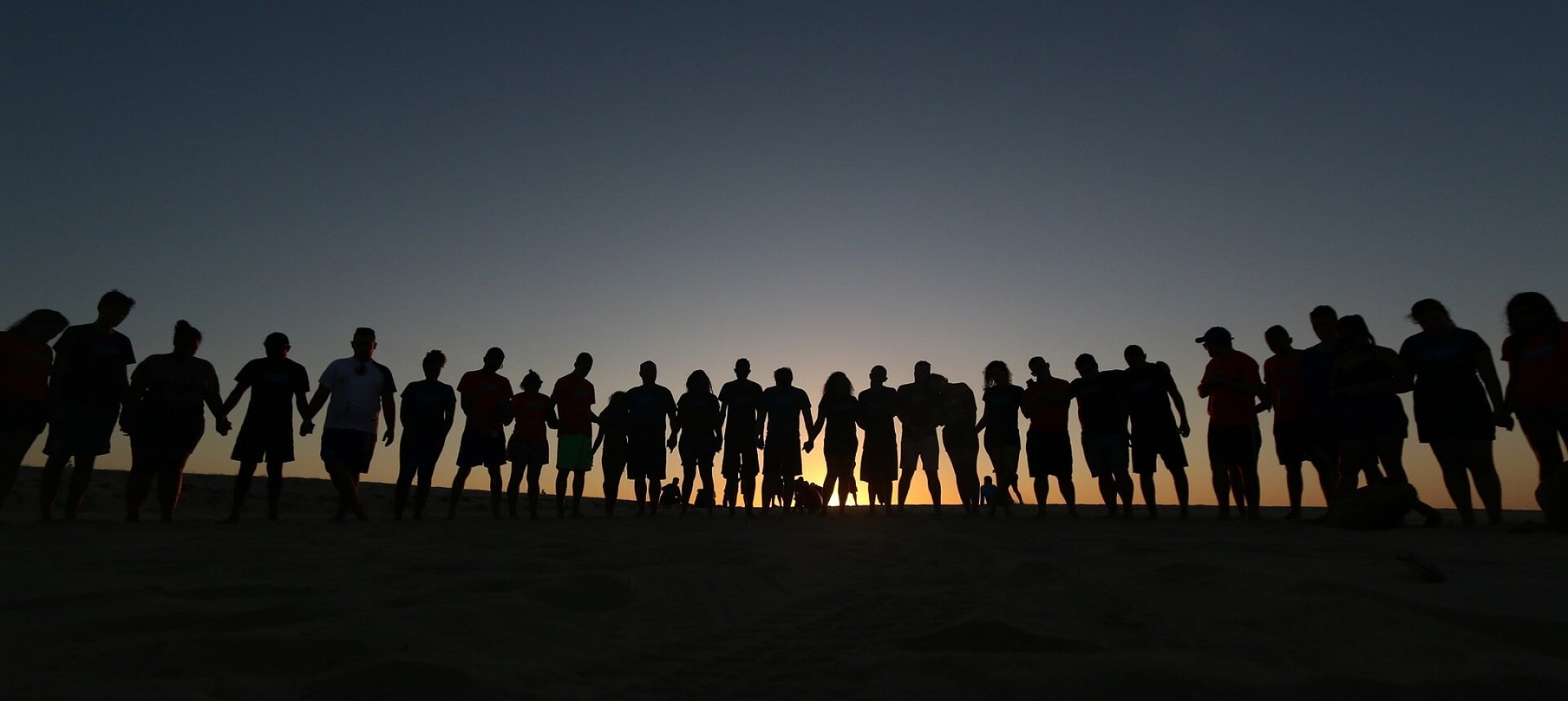
19 August 2019
Freedom from hate
Five organisations from Eastern Europe came together to address the growing concern of online discrimination and hate speech against Europe's biggest minority community, the Roma.
- Central and Eastern Europe
- Women
- Minority stories
Reports and briefings
-
27 January 2023
Combatting discrimination through enhanced access to justice in Croatia and Bulgaria
‘Equality for Roma through Enhanced Legal Access’ (ERELA) is the result of a 2-year collaboration between Minority Rights Group,…
-
15 October 2021
Discrimination against Roma in Croatia and Bulgaria: A comparative report
Discrimination against Roma manifests itself in various ways in Bulgaria and Croatia. This comparative report summarises and analyses the…
Programmes
View all-
- Central and Eastern Europe
- Human Rights
-
- Bulgaria
- Slovakia
- Media
-

Equality for Roma through Enhanced Legal Access (ERELA): Increasing Roma access to justice in Bulgaria and Croatia
- Bulgaria
- Croatia
- Discrimination
Events
-
 Video on demand
Video on demand 21 October 2021 • 8:30 am – 10:30 am BST
On the edge of society – Discrimination against Roma in Croatia and Bulgaria (CRO/ENG)
In Croatia, Roma face discrimination in all spheres of life, including school segregation and discrimination in employment. Negative…
-

15 October 2021 • 12:00 – 2:00 pm BST
On the edge of society – Discrimination against Roma in Croatia and Bulgaria (BLG/ENG)
Do Roma face cases of discrimination? Why aren’t people from the community willing to report these cases? What is the situation of…
Partner Activities
View all-
- Bulgaria
- Roma in Bulgaria
- Ethnic minorities
-
- Bulgaria
- Education
-
- Bulgaria
- Disability rights
Don’t miss out
- Updates to this country profile
- New publications and resources
Receive updates about this country or territory
-
Our strategy
We work with ethnic, religious and linguistic minorities, and indigenous peoples to secure their rights and promote understanding between communities.
-
-
